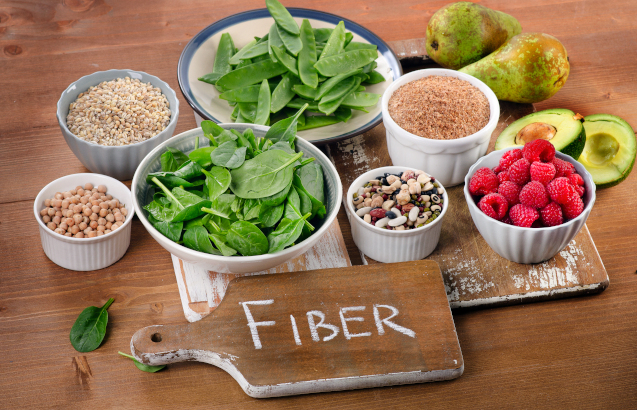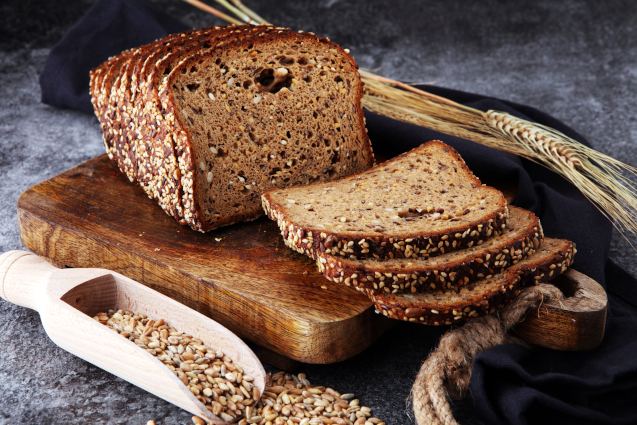Enjoy FREE Shipping on Orders Over $99
DON’T HAVE A COUPON CODE?
Use EZ10OFF At Checkout to Save 10% On Your Entire Order Today!
Reduce the risk of 4 major diseases by eating more of this now!

How impactful can a single nutrient be? Esteemed medical journal The Lancet recently published a study that found that eating more of this important food item led to lower rates of type 2 diabetes, heart disease, stroke & colon cancer in test subjects.
So what exactly is this food item?
Dietary fiber (also known as roughage) includes all parts of plant-based foods that the body is unable to digest.
Unlike protein, carbohydrates and fats, fiber is not digested by the body and passes almost entirely through the digestive system.
Types of Fiber
Soluble fiber dissolves in water and becomes gel-like when wet. It helps lower cholesterol and glucose levels and is found in foods like beans, apples, oats, barley, peas and citrus fruits.
Insoluble fiber promotes the passing of material through the digestive system. It increases stool bulk which benefits people who struggle with constipation. Insoluble fiber is found in foods like wheat bran, nuts, beans whole-wheat flour and certain vegetables like cauliflower and potatoes.
The Study

The research group followed 4,600 participants in 185 studies.
Researchers noted that the risk of participants experiencing the four major diseases (type 2 diabetes, heart disease, stroke & colon cancer) began to fall when they consumed anywhere from 25 to 29 grams of fiber per day.
This finding is particularly interesting because the Institute of Medicine’s recommendations for daily fiber intake are as follows: up to age 50, women should eat 25 grams of fiber per day. After age 50, they should aim for 21 grams daily. The corresponding amounts for men are 38 and 30 grams.
Fiber, The 4 Major Diseases & Fidings
Adding More Fiber To Your Diet
Simply eating vegetables before a meal can already increase your fiber consumption. Non-starchy vegetables are also an excellent low-calorie, high-fiber choice.
Here are 3 more ways you can add more fiber to your diet:
Get Poppin’

Not a lot of people realize that popcorn is actually a whole grain—proudly providing a whopping 4 grams of fiber per ounce (28 grams)! For a healthy movie snack, either pop it in a brown paper bag in the microwave or in an air popper. Be sure to go easy on the salt!
Whole O’er Refined

Refined grains have been stripped of their vitamin-containing germ and fiber-rich hull making them last longer but leaving only a fast-absorbing carb. In contrast, whole grains are minimally processed, leaving the whole grain intact. Rolled oats, brown rice, quinoa and millet are a few examples of food items that can bump up your daily fiber needs.
Don’t Be Afraid To Go Nuts

Seeds and nuts provide an abundance of protein, unsaturated fats and fiber. In fact an ounce of almonds already has 3 grams of fiber. They're high in Magnesium and vitamin E too! What's more, seeds and nuts are shelf-stable—making them ideal snacks to have on hand. Use them in recipes to add extra nutrition and fiber to your meals!
Can You Overdose On Fiber?
Experts say no. “There’s no upper limit,” says registered dietitian Karolin Saweres, RDN, LD.
Unpleasant side effects like bloating and gas from too much fiber usually kick in at around 70 grams of fiber per day (double the recommended RDI for men and nearly three times the RDI for women).
So worry not and fiber up for Healthy Habits!